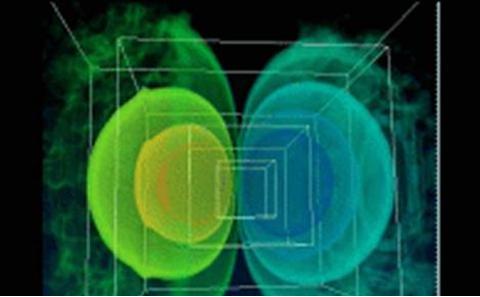Applied Seminar - Hybrid frameworks for modelling reaction-diffusion processes, Kit Yates (University of Bath) Seminar

- Time:
- 12:00 - 13:00
- Date:
- 12 December 2017
- Venue:
- Room 4001, Ketley Room, Building 54, Mathematical Sciences, University of Southampton, Highfield Campus, SO17 1BJ
For more information regarding this seminar, please email Philip Greulich at P.S.Greulich@southampton.ac.uk .
Event details
Spatial reaction-diffusion models have been employed to describe many emergent phenomena in biological systems. The modelling technique for reaction-diffusion systems that has predominated due to its analytical tractability and east of simulation has been the use of partial differential equations (PDEs). However, due to recent advances in computational power, the simulation, and therefore postulation, of computationally intensive individual-based models has become a popular way to investigate the effects of noise in reaction-diffusion systems.
In a wide variety of biological situations, computationally-intensive, high-resolution models are relevant only in particular regions of the spatial domain. In other regions, coarser representations may suffice to capture the important dynamics. Such conditions necessitate the development of hybrid models in which some areas of the domain are modelled using a coarse-grained representation and others using a more fine-grained representation.
In this talk I will discuss recent work from my group on connecting coarse and fine representations of reaction-diffusion phenomena. The models to be coupled will include both on and off-lattice individual-based representations of diffusion with and without volume exclusion as well as macroscopic partial differential equations. In each scenario we will demonstrate good agreement between our hybrid models and the full individual-based representation whilst achieving significant computational savings.
Speaker information
Kit Yates, University of Bath. From the mathematical point of view, my interests are focussed on systems in which stochasticity (randomness) plays an important role. By this I mean that the fully stochastic model of the system displays different behaviour to that of the corresponding deterministic model (if such a model exists). Examples of such systems include (but are not limited to) stochastic focussing, stochastic resonance and multistability, in which the behaviour of the stochastic model can differ significantly from the behaviour of the naive deterministic model. From a biological stand-point I place no restrictions on the types of systems on which I work, other than that they conform, in some sense, to my mathematical areas of interest above. In particular, I have worked across a variety of spatial and temporal scales modelling the microscale stochastic motion of single molecules at one end to the macroscale migration of swarming insect at the other (and the wide range scales in between).